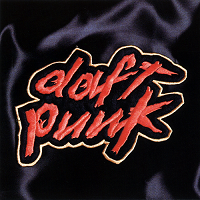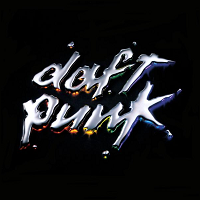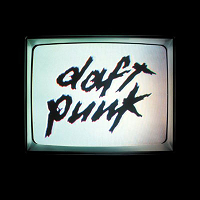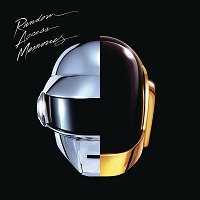You are currently browsing the monthly archive for August 2013.
In the summer of 2002 I stumbled upon animemusicvideos.org and discovered AMVs for the first time. I couldn’t believe that so many people were making these things. Why hadn’t anyone told me sooner? I got very excited about the idea of making and sharing them. Unfortunately I was very poor and wouldn’t be able to afford a proper computer to actually make some on for many years. I did go on to make some, although it’s been a real waste of my time so far, to be honest.
This AMV was one of the first that I remember watching. It was edited by a guy going by the name of Zerophite. We chatted online for a brief time while I was living at school that summer. I was very excited to find someone else online that loved anime and electronic music. Very soon afterward, at least according to his profile on the Org, he left the AMV community never to return. By the time I entered it, he was long gone and I found that there really weren’t any other editors in the “scene” who shared the same interests or even enjoyed Warp-esque electronic music. I’m still looking for someone, anyone else online, who likes anime, AMVs, and the same music that I listen to. Oh well.
“Olson” was a track from Music Has the Right to Children, an album by Boards of Canada, whom I’ll be posting more about very soon.
When the first episode of Devil is a Part-Timer! had reached its end credits, I felt like I’d just finished watching something really special. Here was a great-looking, genuinely funny series with a truly original premise and likable characters that, based on the promise of the debut episode, surely had to turn out to be as complex and deep as we could possibly have hoped. I don’t want to get carried away and suggest that this episode was some kind of masterpiece, but it was legitimately great. Was it wrong to get my hopes up?
I won’t rehash the plot here (if you need a rundown, click here). All I’ll say is that it could have been a springboard for all kinds of really interesting possibilities. Has there ever been an anime series (or any television series at all) that’s really focused on the drudgery of the workplace? The sense of tedium and frustration that comes with working in the lowest-paying sectors of the service-industry? Even after the global recession, has television (or films, books, fucking anything at all) bothered to tell the stories of people who’ve lost their jobs and been forced to start all over again from the very bottom? Because that’s essentially what this anime is about. Or could have been if it was willing to be about anything at all.
In my review of Blue Exorcist, I complained about the series’ lack of interest in exploring deeper spiritual themes. Heck, I’d have been satisfied with cheap exploitation of its religious subject matter if it would have contributed to the plot, or at least to the viewers’ sense of intrigue. Much like that series, The Devil is a Part-Timer! sidesteps any commitment to religious references beyond its superficial depiction of a corrupted, Inquisition-practicing church (which is shown to take place in an alternate dimension, but it’s pretty clear what denomination is being portrayed). Would the writers be up for discussing prickly theological questions? Yes, I know that the main character is not the Satan we all know from the Christian Bible. And I know that Japan views religion in a very different way from what we’re used to in the West. So what?
Anyway, there’s a lot of potential here but it’s squandered very early on as the creators rush to embrace cliches and conform to the safest possible turn of events, resulting in a series that frustratingly abandons its most interesting qualities in favor of distinctly middle-of-the-road tropes. By episode three, the series’ emphasis on the workplace is all but completely abandoned, bringing to mind inspid garbage like Working!! (which I originally praised but have since regretted ever spending a single minute ever watching). A rash of supporting characters are introduced over the course of the 13-episode series. None are memorable or interesting. The series’ chief protagonist even takes a backseat to a busty moeblob who’s neither original, intelligent, or particularly charming in any way… unless that kind of character archetype is your thing, in which case, maybe this series is right up your wheelhouse. Hopefully you’re not bothered by the casual, often-gleeful misogyny that the female characters are so hilariously and repeatedly subjected to.
I’d recommend The Devil is a Part-Timer! to any fan of this kind of humor but otherwise this was a letdown. It’s enjoyable in its own way but could have been so much better if had any aspirations beyond fitting in to the most predictable expectations of typcial “slice of life” and high school anime series. I don’t like to give scores or grades to series, but if I did, this one would earn a C+.
 Consider Homework, their first album. When I first heard it, I was underwhelmed by the “dirty” quality of its production, which I assumed was the result of technical incompetence, and its lack of any tracks resembling actual songs. “Da Funk” and (to a lesser extent) “Around the World” were radio hits. All the kids at school knew them and I remember hearing them being sing-hummed in the hallways. I was annoyed by both songs and considered them cloying, gimmicky crap, judgments based on misguided assumptions about the artists’ background and intent, a burgeoning, horribly ill-informed sense of musical elitism that I misunderstood as inspired wisdom, and a prejudice against anything that dared to sound so unapologetically goofy and/or fun. I latched onto The Chemical Brothers and The Prodigy during the height of their brief ascents to American fame, but wrote off Daft Punk because… well, their sound seemed rooted in a musical realm that I assumed was “dead.” Electronica, big beat, drum and bass, trip hop… these were the “new” sounds that, at the time, made me feel like I was discovering a whole new world. I’m not going to try to list all my favorites from the MTV Amp era (I use this TV series as a convenient signpost, we did not have cable TV so I never actually watched it), some of which I still think are legitimately amazing, others which I never particularly want to hear again, but for whatever reason, I found vast swaths of this new scene to be absolutely compelling, while totally writing off Daft Punk as a passing fad that I didn’t need to care about.
Consider Homework, their first album. When I first heard it, I was underwhelmed by the “dirty” quality of its production, which I assumed was the result of technical incompetence, and its lack of any tracks resembling actual songs. “Da Funk” and (to a lesser extent) “Around the World” were radio hits. All the kids at school knew them and I remember hearing them being sing-hummed in the hallways. I was annoyed by both songs and considered them cloying, gimmicky crap, judgments based on misguided assumptions about the artists’ background and intent, a burgeoning, horribly ill-informed sense of musical elitism that I misunderstood as inspired wisdom, and a prejudice against anything that dared to sound so unapologetically goofy and/or fun. I latched onto The Chemical Brothers and The Prodigy during the height of their brief ascents to American fame, but wrote off Daft Punk because… well, their sound seemed rooted in a musical realm that I assumed was “dead.” Electronica, big beat, drum and bass, trip hop… these were the “new” sounds that, at the time, made me feel like I was discovering a whole new world. I’m not going to try to list all my favorites from the MTV Amp era (I use this TV series as a convenient signpost, we did not have cable TV so I never actually watched it), some of which I still think are legitimately amazing, others which I never particularly want to hear again, but for whatever reason, I found vast swaths of this new scene to be absolutely compelling, while totally writing off Daft Punk as a passing fad that I didn’t need to care about. Discovery arrived in early 2001. My first impression? I saw the video for “One More Time” on MTV playing on one of the lounges at college. I distinctly remember furrowing my brow and shaking my head in disgust. “Are you kidding me? Are they trying to make a parody of AMVs or something? And why is this song so gay?”
Discovery arrived in early 2001. My first impression? I saw the video for “One More Time” on MTV playing on one of the lounges at college. I distinctly remember furrowing my brow and shaking my head in disgust. “Are you kidding me? Are they trying to make a parody of AMVs or something? And why is this song so gay?” Human After All… well, it’s got “Robot Rock,” which I would often play on repeat and still love. The rest of the album, thought, was a very frustrating departure from the emotionally-moving songs and warm sonic palette of Discovery. “The Brainwasher,” “Television Rules the Nation,” and “Steam Machine” sounded positively grating in comparison to beautiful songs like “Digital Love” or “Something About Us.” I wanted this album to be as good as Homework and Discovery. Even if it wasn’t, I wanted to love it just as much. Were my expectations too high? I tried to give Human After All a fair shake, but after a few months, I finally accepted that it just wasn’t as good as its predecessors. Was it even a good album at all? I wasn’t sure.
Human After All… well, it’s got “Robot Rock,” which I would often play on repeat and still love. The rest of the album, thought, was a very frustrating departure from the emotionally-moving songs and warm sonic palette of Discovery. “The Brainwasher,” “Television Rules the Nation,” and “Steam Machine” sounded positively grating in comparison to beautiful songs like “Digital Love” or “Something About Us.” I wanted this album to be as good as Homework and Discovery. Even if it wasn’t, I wanted to love it just as much. Were my expectations too high? I tried to give Human After All a fair shake, but after a few months, I finally accepted that it just wasn’t as good as its predecessors. Was it even a good album at all? I wasn’t sure. This brings us to Random Access Memories, released over two months ago to some of the highest expectations that any album has arrived to in quite some time. “Get Lucky” did more than meet those expectations; it reasserted the duo’s mastery of their craft, specifically, the shimmery disco funk that made Discovery the beautiful masterpiece that it is. Not that “Get Lucky” sounded like a lost Discovery track, but it was unapologetically pop, a tag that was difficult to pin to anything at all on Human After All. And not only was “Get Lucky” one of Daft Punk’s most immediately appealing and accessible songs, but it achieved massive crossover success, propelling Random Access Memories to the top of the charts all across the world.
This brings us to Random Access Memories, released over two months ago to some of the highest expectations that any album has arrived to in quite some time. “Get Lucky” did more than meet those expectations; it reasserted the duo’s mastery of their craft, specifically, the shimmery disco funk that made Discovery the beautiful masterpiece that it is. Not that “Get Lucky” sounded like a lost Discovery track, but it was unapologetically pop, a tag that was difficult to pin to anything at all on Human After All. And not only was “Get Lucky” one of Daft Punk’s most immediately appealing and accessible songs, but it achieved massive crossover success, propelling Random Access Memories to the top of the charts all across the world.
